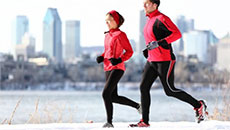Ignorance, people say, is bliss. Not so with hypertension though. For, uncontrolled high blood pressure, if left untreated over a prolonged period, can cause a stroke by damaging the blood vessels in the brain, health experts have warned.
What amplifies the problem of hypertension is the fact that it often goes unnoticed as it attacks the body surreptitiously, without showing up symptoms of its own.
Its prevalence in India is widespread. According to a recent study published in the Journal of Hypertension, about one-third of India's urban population and one-fourth of the rural population are hypertensive.
"High blood pressure can cause blood clots to form in the arteries leading to your brain, blocking blood flow and leading to lack of oxygen supply to the brain cells and tissues, potentially causing a stroke," Tapan Ghose, Director, Cardiology, Fortis Hospital, Vasant Kunj, New Delhi, told IANS.
High blood pressure damages arteries throughout the body, creating conditions where they can burst or clog more easily. Weakened arteries in the brain, resulting from high blood pressure, put people at a much higher risk of stroke, according to the American Heart Association.
There are primarily two types of strokes -- "ischemic stroke" which can happen due to a reduction in blood supply to the brain, and "hemorrhagic stroke" that is due to bleeding in the brain.
"High blood pressure is responsible for almost half the ischemic strokes that are also called brain attacks, akin to a heart attack. It also increases the chances of hemorrhagic strokes," said Gunjan Kapoor, Director, Interventional Cardiology Department, Jaypee Hospital, Noida.
"It is one of the leading causes for stroke that contributes over 50 per cent in blockages (ischemic stroke) and leads to bleeding in the brain," Vipul Gupta, Director, Artemis Hospital, Gurgaon, added.
But early detection of blood pressure and its management may reduce its complications and risk of death.
"Reduction of only 5 mm mercury systolic blood pressure reduces incidence of stroke by nine per cent and coronary heart disease (CHD) by six per cent," said B.K. Dubey, Director, Cardiologist, Venkateshwar Hospital, Dwarka, New Delhi.
The exact causes of high blood pressure are not known, but several factors and conditions may play a role in its development, such as smoking, lack of physical activity, too much salt in the diet, consumption of alcohol, stress, and genetic family history of high blood pressure.
"Being overweight can also put you at risk of high blood pressure, heart disease and Type-2 diabetes, all of which increase your risk of a stroke," said J.D. Mukherji, Senior Director - Neurology, Max Super Speciality Hospital in Saket, New Delhi.
Some symptoms for early detection of high blood pressure include headache, chest discomfort, palpitations, shortness of breath, irregular heartbeat, nosebleeds and feeling numb or weak.
Hypertension in the majority of patients is a lifestyle disease and requires aggressive lifestyle changes to manage the disease. However, a subset of patients may be having secondary hypertension due to other reasons.
"The best way to control high blood pressure is to diagnose it. Once diagnosed, the doctor may prescribe medicine, drugs, diet and exercise to help keep the blood pressure in control. Making certain lifestyle changes can keep a check on your hypertension. Avoid a sedentary lifestyle, quit smoking and limit alcohol," Anil Kansal, Neurosurgeon, BLK Super Speciality Hospital, New Delhi, suggested.
Eating plenty of fruit and vegetables, cutting down on full-fat milk, cream and cheese, as well as fatty meat and takeaways may also help control hypertension.
"Exercise also plays an imperative role to strengthen your cardiovascular health. It reduces hypertension and other heart-related issues to a great extent, but it should always be done under a certified fitness professional," said Rachit Dua, a Delhi-based fitness coach and nutritionist.








